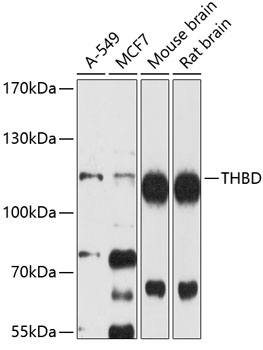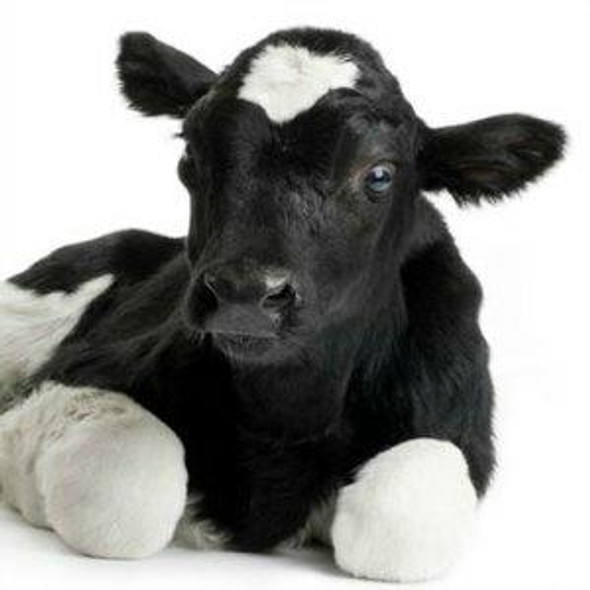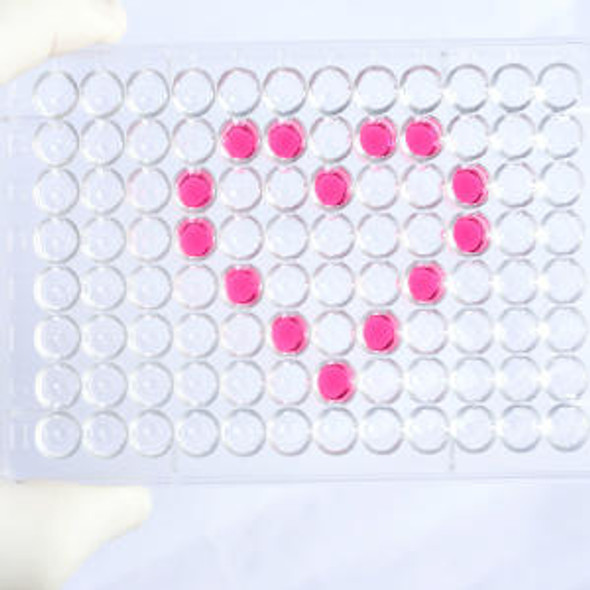Anti-THBD Antibody (CAB4155)
- SKU:
- CAB4155
- Product type:
- Antibody
- Reactivity:
- Human
- Mouse
- Rat
- Host Species:
- Rabbit
- Isotype:
- IgG
- Research Area:
- Cardiovascular
Frequently bought together:
Description
| Antibody Name: | Anti-THBD Antibody |
| Antibody SKU: | CAB4155 |
| Antibody Size: | 20uL, 50uL, 100uL |
| Application: | WB IHC |
| Reactivity: | Human, Mouse, Rat |
| Host Species: | Rabbit |
| Immunogen: | Recombinant fusion protein containing a sequence corresponding to amino acids 200-500 of human THBD (NP_000352.1). |
| Application: | WB IHC |
| Recommended Dilution: | WB 1:200 - 1:2000 IHC 1:50 - 1:200 |
| Reactivity: | Human, Mouse, Rat |
| Positive Samples: | A-549, MCF7, Mouse brain, Rat brain |
| Immunogen: | Recombinant fusion protein containing a sequence corresponding to amino acids 200-500 of human THBD (NP_000352.1). |
| Purification Method: | Affinity purification |
| Storage Buffer: | Store at -20°C. Avoid freeze / thaw cycles. Buffer: PBS with 0.02% sodium azide, 50% glycerol, pH7.3. |
| Isotype: | IgG |
| Sequence: | RGAD FQAL PVGS SAAV APLG LQLM CTAP PGAV QGHW AREA PGAW DCSV ENGG CEHA CNAI PGAP RCQC PAGA ALQA DGRS CTAS ATQS CNDL CEHF CVPN PDQP GSYS CMCE TGYR LAAD QHRC EDVD DCIL EPSP CPQR CVNT QGGF ECHC YPNY DLVD GECV EPVD PCFR ANCE YQCQ PLNQ TSYL CVCA EGFA PIPH EPHR CQMF CNQT ACPA DCDP NTQA SCEC PEGY ILDD GFIC TDID ECEN GGFC SGVC HNLP GTFE CICG PDSA LARH IGTD CDSG KVDG GDSG SGEP PPSP T |
| Gene ID: | 7056 |
| Uniprot: | P07204 |
| Cellular Location: | Membrane, Single-pass type I membrane protein |
| Calculated MW: | 60kDa |
| Observed MW: | 110kDa |
| Synonyms: | THBD, AHUS6, BDCA3, CD141, THPH12, THRM, TM |
| Background: | The protein encoded by this intronless gene is an endothelial-specific type I membrane receptor that binds thrombin. This binding results in the activation of protein C, which degrades clotting factors Va and VIIIa and reduces the amount of thrombin generated. Mutations in this gene are a cause of thromboembolic disease, also known as inherited thrombophilia. |
| UniProt Protein Function: | thrombomodulin: Thrombomodulin is a specific endothelial cell receptor that forms a 1:1 stoichiometric complex with thrombin. This complex is responsible for the conversion of protein C to the activated protein C (protein Ca). Once evolved, protein Ca scissions the activated cofactors of the coagulation mechanism, factor Va and factor VIIIa, and thereby reduces the amount of thrombin generated. Defects in THBD are the cause of thrombophilia due to thrombomodulin defect (THPH12). A hemostatic disorder characterized by a tendency to thrombosis. Defects in THBD are a cause of susceptibility to hemolytic uremic syndrome atypical type 6 (AHUS6). An atypical form of hemolytic uremic syndrome. It is a complex genetic disease characterized by microangiopathic hemolytic anemia, thrombocytopenia, renal failure and absence of episodes of enterocolitis and diarrhea. In contrast to typical hemolytic uremic syndrome, atypical forms have a poorer prognosis, with higher death rates and frequent progression to end-stage renal disease. Susceptibility to the development of atypical hemolytic uremic syndrome can be conferred by mutations in various components of or regulatory factors in the complement cascade system. Other genes may play a role in modifying the phenotype. |
| UniProt Protein Details: | Protein type:Membrane protein, integral Chromosomal Location of Human Ortholog: 20p11.2 Cellular Component: extracellular space; cell surface; integral to plasma membrane; plasma membrane Molecular Function:protein binding; transmembrane receptor activity; receptor activity; calcium ion binding Biological Process: negative regulation of fibrinolysis; response to cAMP; negative regulation of blood coagulation; response to lipopolysaccharide; female pregnancy; signal transduction; blood coagulation; leukocyte migration; response to X-ray Disease: Thrombophilia Due To Thrombomodulin Defect; Hemolytic Uremic Syndrome, Atypical, Susceptibility To, 6 |
| NCBI Summary: | The protein encoded by this intronless gene is an endothelial-specific type I membrane receptor that binds thrombin. This binding results in the activation of protein C, which degrades clotting factors Va and VIIIa and reduces the amount of thrombin generated. Mutations in this gene are a cause of thromboembolic disease, also known as inherited thrombophilia. [provided by RefSeq, Jul 2008] |
| UniProt Code: | P07204 |
| NCBI GenInfo Identifier: | 136170 |
| NCBI Gene ID: | 7056 |
| NCBI Accession: | P07204.2 |
| UniProt Secondary Accession: | P07204,Q8IV29, Q9UC32, |
| UniProt Related Accession: | P07204 |
| Molecular Weight: | 60,329 Da |
| NCBI Full Name: | Thrombomodulin |
| NCBI Synonym Full Names: | thrombomodulin |
| NCBI Official Symbol: | THBD |
| NCBI Official Synonym Symbols: | TM; THRM; AHUS6; BDCA3; CD141; THPH12 |
| NCBI Protein Information: | thrombomodulin; fetomodulin; CD141 antigen |
| UniProt Protein Name: | Thrombomodulin |
| UniProt Synonym Protein Names: | Fetomodulin; CD_antigen: CD141 |
| Protein Family: | Thrombomodulin |
| UniProt Gene Name: | THBD |
| UniProt Entry Name: | TRBM_HUMAN |






